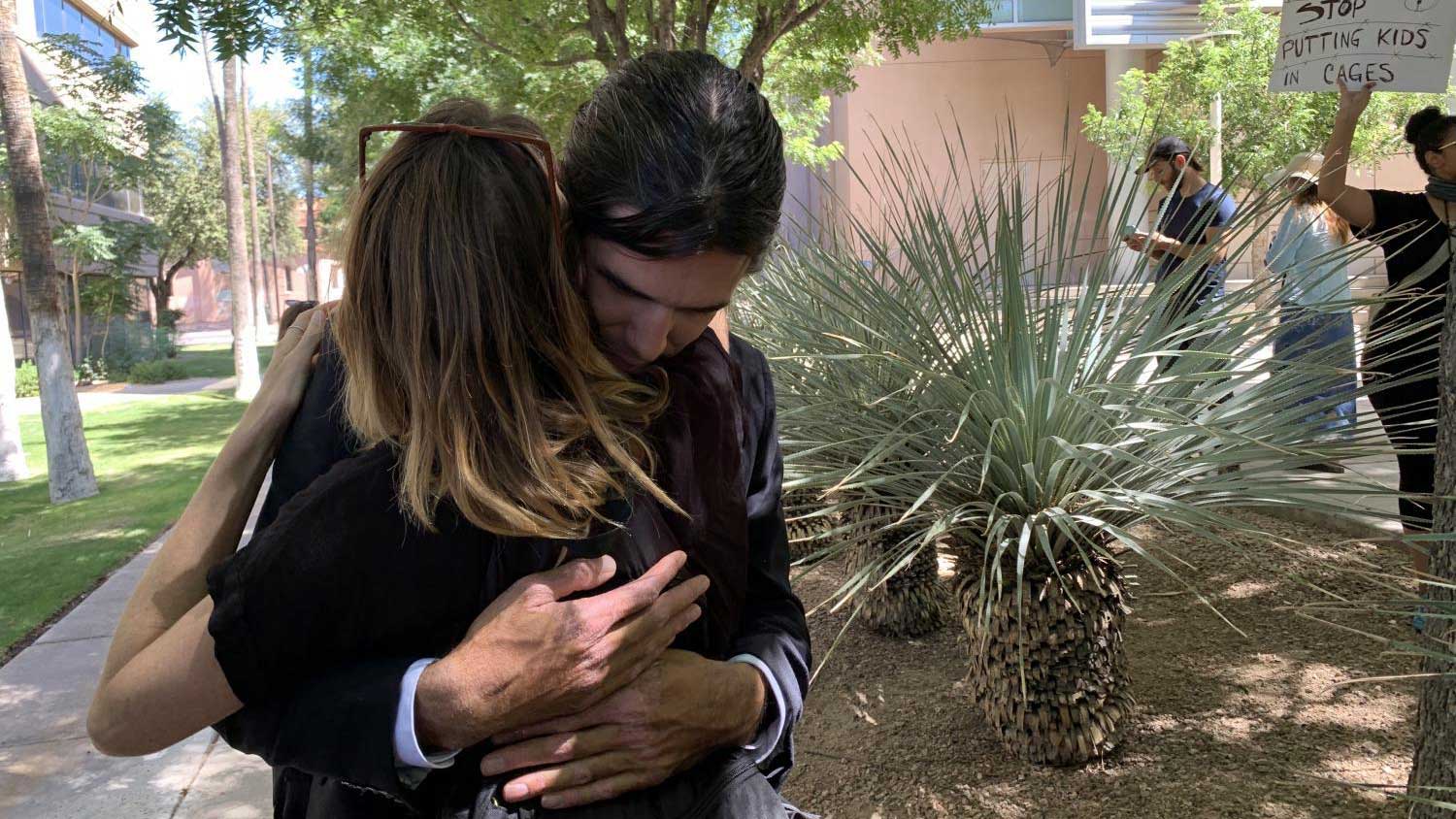 VIEW LARGER Scott Warren hugs a supporter after the government announces it will seek to try him again on two felony counts on July 2, 2019.
VIEW LARGER Scott Warren hugs a supporter after the government announces it will seek to try him again on two felony counts on July 2, 2019. An Arizona border activist accused of harboring migrants who snuck across the U.S.-Mexico border goes on trial for the second time Tuesday, insisting he was simply trying to help two men in need.
Prosecutors have said Scott Warren, 37, conspired to help the men avert authorities and the first trial for the volunteer with the No More Deaths group ended in a mistrial last June when the jury deadlocked. The group drops off water for migrants in the desert and runs a camp to aid injured migrants.
Warren and his supporters have said the government under President Donald Trump has increasingly scrutinized humanitarian groups at the border — and prosecutors have asked the judge to prohibit Warren from mentioning Trump during the trial, according to court documents.
They have argued that any mention of the president or his administration would be irrelevant and that doing so would pose the danger of unfair prejudice.
Warren's defense attorneys have said that the government's request would violate Warren's rights and that the prosecution has not shown in what way it would suffer if the president were mentioned. The judge has not ruled on that request.
Warren, of the small town of Ajo about 40 miles from the border, faces two felony counts of harboring.
While Warren has said he was performing a humanitarian mission to help migrants in need, prosecutors contend he conspired they were never in distress. They say Warren gave them directions on how to avoid a Border Patrol checkpoint when they left the No More Deaths camp in Ajo in January 2018.
Warren is one of nine No More Deaths members who have been charged with crimes related to their work, although he's the only facing felony charges.
Warren's arrest came months after Border Patrol agents began an investigation into the No More Deaths camp, according to documents released after news organizations sued to get them.
The documents show that in April 2017, an anonymous Ajo resident told Border Patrol officials that he suspected members of the group were harboring immigrants in their building, known as "The Barn."
About three months later, federal and local officials detained members for allegedly vandalizing a camera at Cabeza Prieta National Wildlife Refuge, where they regularly left water jugs.
In November, agents interviewed residents who said they had noticed more traffic and littering outside "The Barn."
Agents eventually encountered a man who said he had traveled across the desert with two other men who were picked up by a van.
Suspecting they might be at the No More Deaths building, agents began watching "The Barn" on Jan. 17, 2018, arresting Warren and the two Central American migrants. The men were deported after providing video testimony.
Thousands of immigrants have died crossing the border since the mid-1990s, when increased enforcement pushed many to Arizona's scorching desert.

By submitting your comments, you hereby give AZPM the right to post your comments and potentially use them in any other form of media operated by this institution.